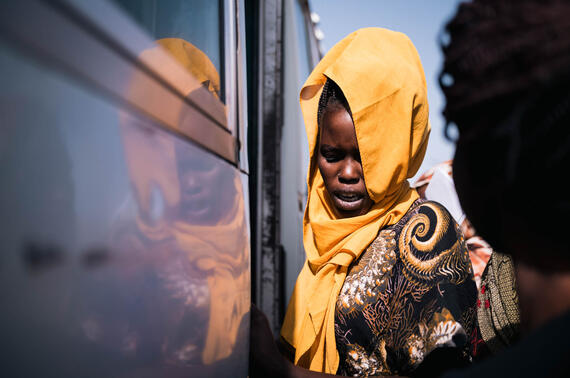Global call to address extreme heat as world records its three hottest days ever
This week, as the world recorded its three hottest days on record, OCHA and nine other UN entities joined the Call to Action on Extreme Heat, issued today by the UN Secretary-General, António Guterres.
Mr. Guterres also released a report that encapsulates the impact of deadly heatwaves but also the action needed to deal with increasingly hotter days and months, which threaten to increase emergency needs in the not-so-distant future.
“Heat is estimated to kill almost half a million people a year, that’s about 30 times more [people] than tropical cyclones,” said Mr. Guterres. “Extreme heat is increasingly tearing through economies, widening inequalities, undermining the Sustainable Development Goals and killing people.”
The Call to Action underlines four critical areas to reduce the impact of extreme heat on people and the planet:
• Caring for vulnerable people
• Protecting workers
• Boosting resilience of economies and societies using data and science
• Limiting temperature rise to 1.5°C by phasing out fossil fuels and scaling up investment in renewable energy.
The report’s solutions include increasing everyone’s access to low-carbon cooling systems, investing in heat-related health-warning systems, protecting workers from heat stress, and heatproofing infrastructure and agriculture.

In 2022, OCHA and the International Federation of Red Cross and Red Crescent Societies published Extreme Heat, which outlines the impact of heat on people caught up in humanitarian crises. The report offers solutions such as providing early information on heatwaves to help people and authorities take timely action.
It also calls for preparedness and the need to expand anticipatory action, especially by local actors, who are often the first responders in emergencies.
But these solutions all require action plans to be drafted at the micro and macro levels in every country, along with investment and support.
Countries must come together for a “strong finance outcome from COP29 to help developing countries tackle the climate crisis,” said Mr. Guterres.
Many of these solutions offer great payoffs. For example, scaling up heat-related health-warning systems in 57 countries alone could save almost 100,000 lives a year, according to the World Health Organization and the World Meteorological Organization.
Investments in cooling measures, such as expansive low-carbon cooling systems and planting trees to improve shade cover, could protect 3.5 billion people by 2050, slash emissions and save consumers US$1 trillion a year.
Heat is but a “symptom” of a “disease,” which is the “addiction to fossil fuels,” noted Mr. Guterres. “Countries must phase out fossil fuels – fast and fairly.”
This year has been one of unprecedented heat, with deadly heatwaves and scorching conditions recorded in nearly every continent. Excessive heat killed 1,300 pilgrims during Haj in June, and more than 80 million children across Africa and Asia were affected by heat-related school closures.
